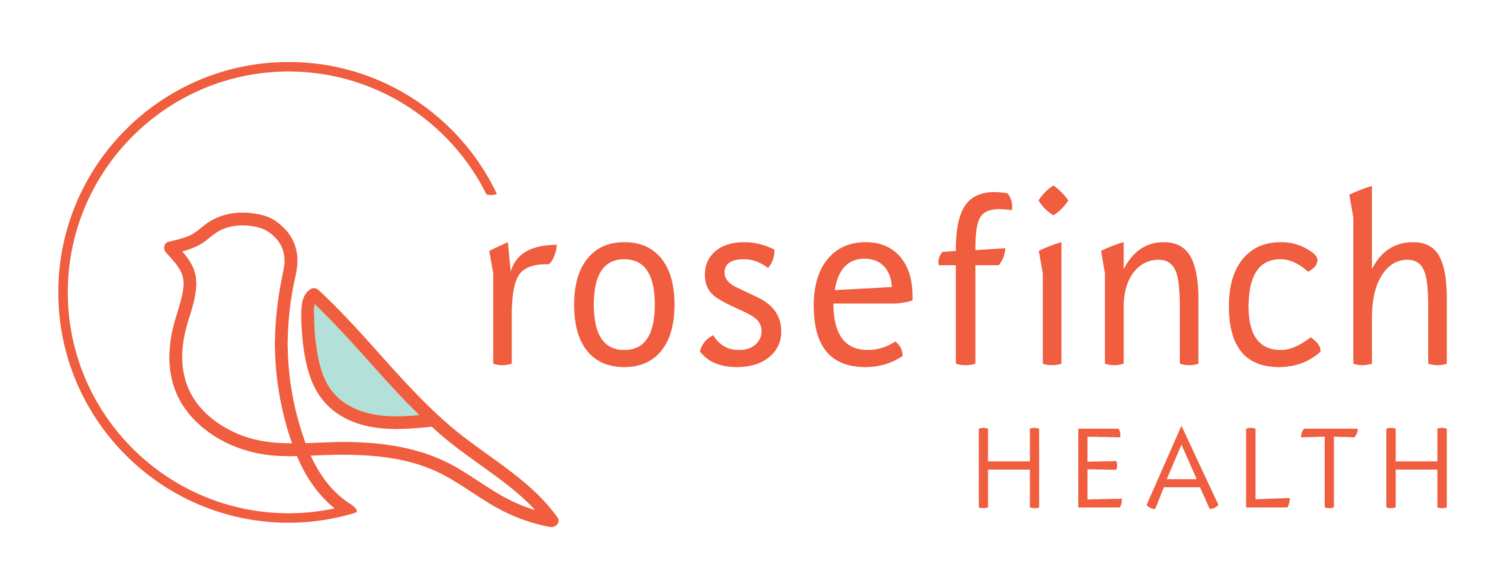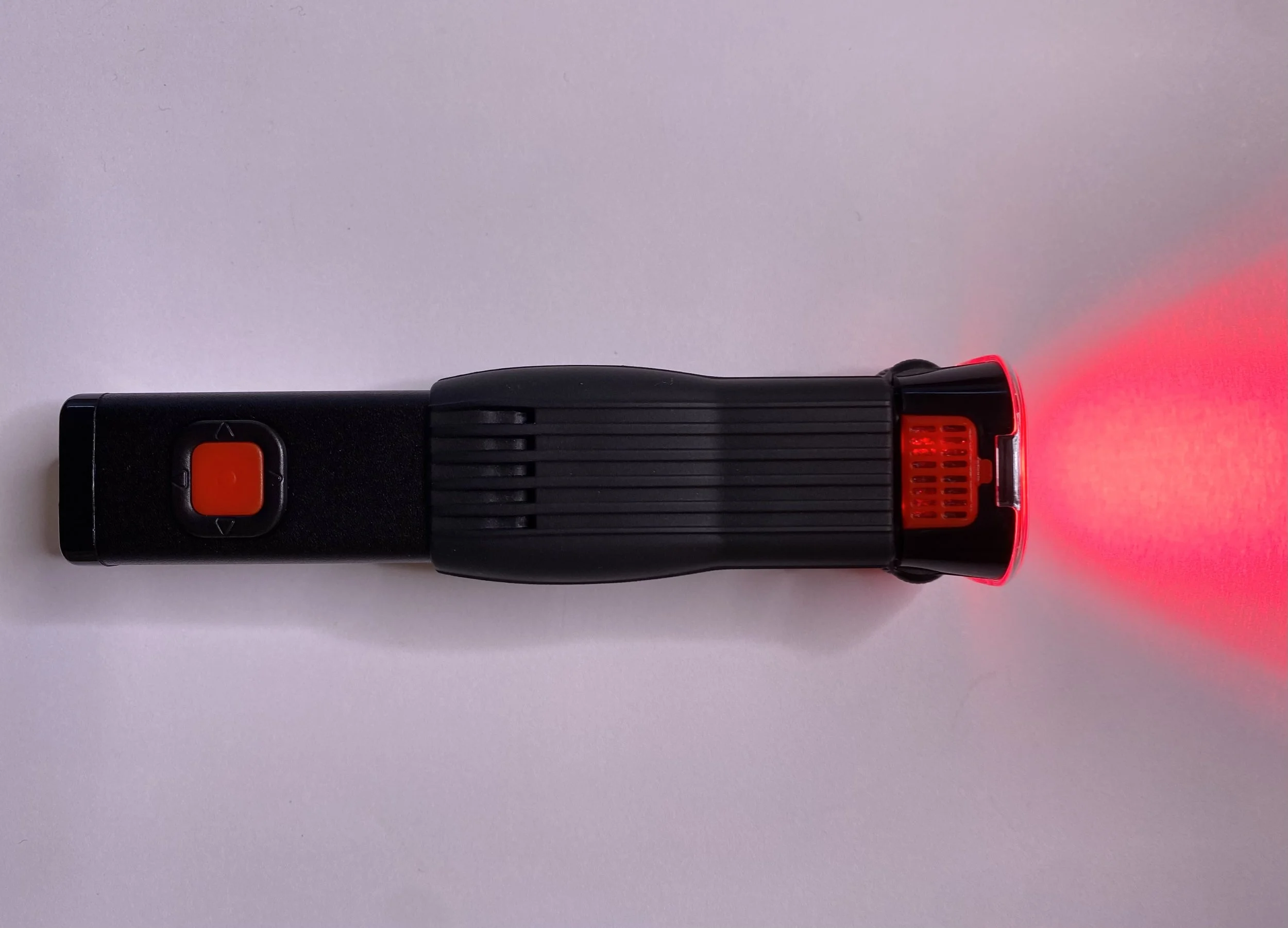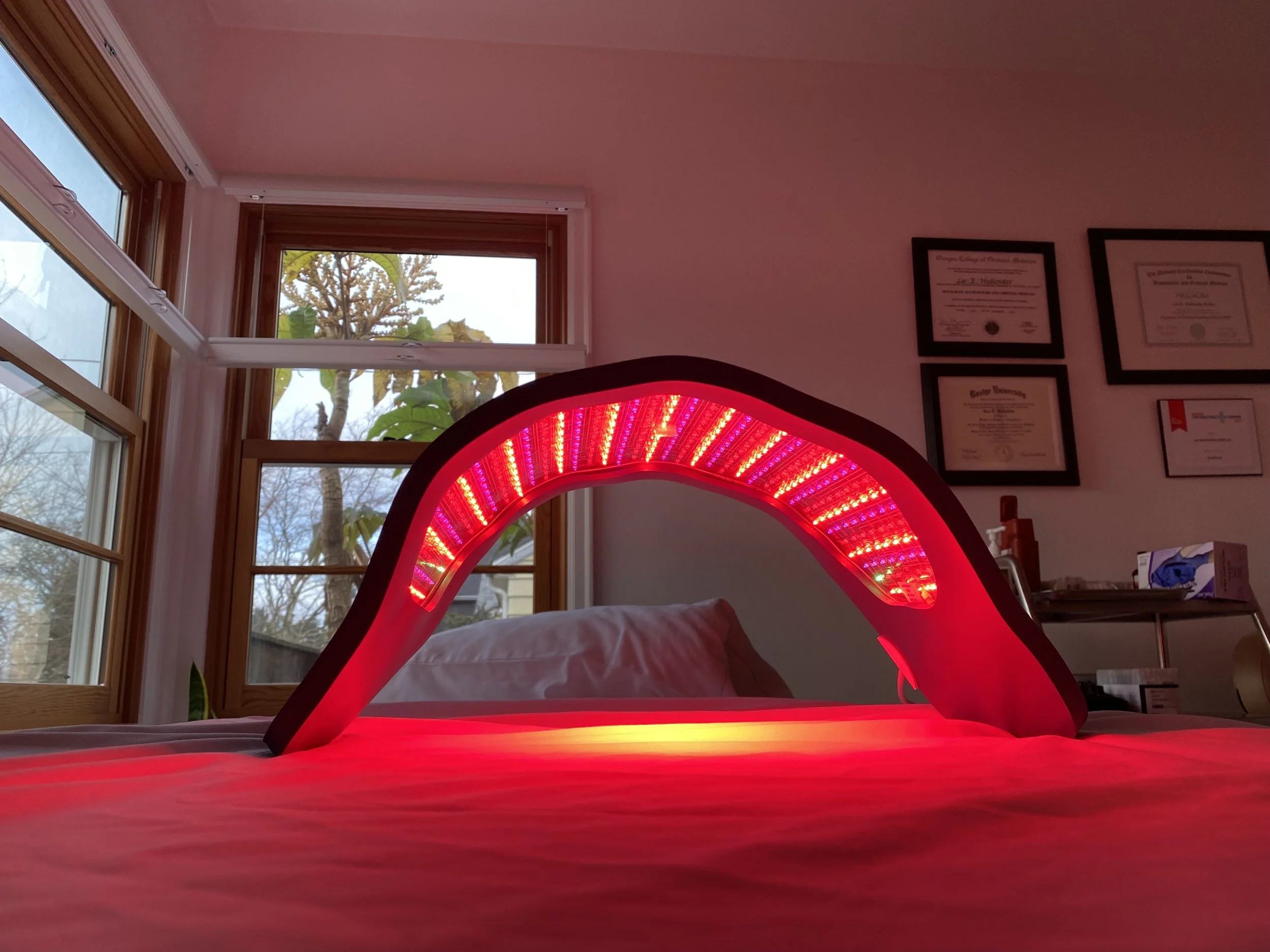Laser and Red Light Therapy for Fertility: Could Light-Based Treatment Boost Your Chances of Conceiving?
Struggling with fertility can feel overwhelming, especially when treatments aren't yielding results. Laser and red light therapy for fertility are promising light-based treatments gaining traction among fertility specialists and patients alike.
What Is Laser Therapy for Fertility?
Laser therapy for fertility, also called photobiomodulation therapy or low-level laser therapy (LLLT), uses specific wavelengths of red and infrared light to stimulate cellular healing at the reproductive level. Unlike surgical lasers, these "cold lasers" don't generate heat or cause tissue damage.
The treatment works by targeting chromophores—light-sensitive molecules in cells—which triggers beneficial cellular processes including:
Enhanced mitochondrial energy (ATP) production
Improved blood circulation to reproductive organs
Reduced inflammation and oxidative stress
Activated cellular repair mechanisms
Think of it as cellular optimization for your reproductive system, similar to acupuncture but using therapeutic light instead of needles.
Laser vs. Red Light Therapy: Understanding the Difference
Laser therapy uses coherent, focused light beams that penetrate deeper into tissues with precision targeting.
Red light therapy (LEDs) uses broader, non-coherent light covering larger areas but with less penetration.
While LED therapy shows promise for menstrual pain, current fertility research focuses primarily on laser therapy applications.
Research-Backed Benefits for Fertility
IVF Success Rates
The most significant study from RMA New Jersey examined 843 IVF patients. Results showed that laser acupuncture performed on embryo transfer day improved implantation rates by 38% compared to sham treatment. While pregnancy and live birth rates were higher, larger studies are needed to confirm statistical significance.
Male Fertility Improvements
An Iranian pilot study treating men with low sperm counts found laser therapy significantly improved both sperm concentration and motility after 10 treatments over 5 weeks, with benefits lasting at 12-week follow-up.
PCOS Management
Research from Egypt demonstrated that laser therapy for PCOS significantly improved key hormonal markers including testosterone levels, LH/FSH ratios, and insulin sensitivity after 12 weeks of treatment.
Stress and Emotional Support
A Japanese study found laser therapy reduced anxiety and tension in women undergoing IVF, providing valuable emotional support during fertility treatment.
Treatment Protocols and What to Expect
Typical laser fertility treatments involve:
Frequency: 1-2 sessions weekly
Duration: 5-12 weeks depending on condition
Session length: 10-30 minutes
Locations: Fertility clinics, acupuncture practices
Cost: Varies by location and provider (often $50-150 per session)
Some fertility clinics, including RMA New Jersey, now offer laser therapy as part of standard IVF protocols.
Combining Laser Therapy with Other Treatments
Laser therapy works well alongside:
Traditional IVF protocols
Acupuncture treatments
Nutritional therapy
Stress reduction techniques
Conventional fertility medications
Many practitioners integrate laser therapy into comprehensive fertility treatment plans rather than using it as a standalone intervention.
Is Laser Therapy Worth Trying?
While research on laser therapy for fertility is promising, it's still emerging. The combination of potential benefits, excellent safety profile, and minimal side effects makes it an attractive complementary option for many couples.
Key takeaways:
Evidence shows promise for IVF success, PCOS, and people with sperm issues
Safety profile is excellent with minimal side effects
Best used as complement to established fertility treatments
Individual results vary—what works for one person may not work for another
Finding Qualified Providers
When seeking laser fertility treatment:
Look for board-certified fertility specialists or licensed acupuncturists. In Portland, Oregon, Dr. Lee Hullender Rubin, Doctor of Acupuncture, has been providing laser and red light treatments for several years.
Ask about specific training in photobiomodulation. Dr. Lee has attended multiple trainings on laser and red light therapy to ensure the quality and safety of care.
Inquire about treatment protocols and expected outcomes. Dr. Lee continuously reviews the research literature to optimize treatments and develop ideal protocols to support your fertility and improve outcomes.
Ensure proper safety screening procedures. This is especially important as there are specific situations where laser and red light therapy are not appropriate.
Future of Light-Based Fertility Treatment
As research continues, laser therapy may become a standard part of fertility care. Current studies are exploring optimal wavelengths, treatment frequencies, and patient selection criteria to maximize effectiveness.
For couples navigating fertility challenges, laser therapy may offer hope backed by growing scientific evidence. While not a miracle cure, it represents an exciting frontier in reproductive medicine that's worth discussing with your healthcare team. Have questions? Email us to learn more.



